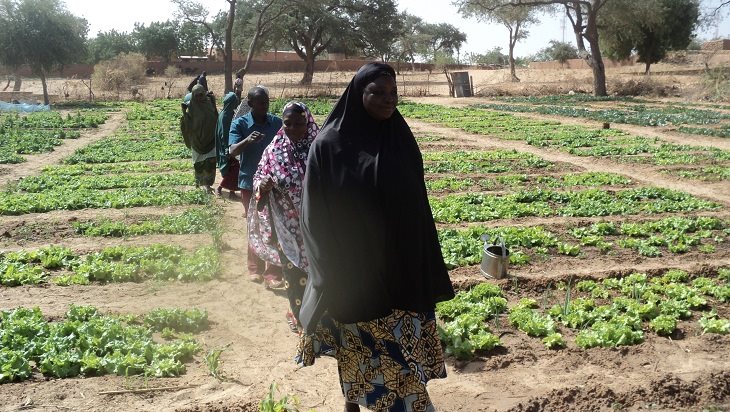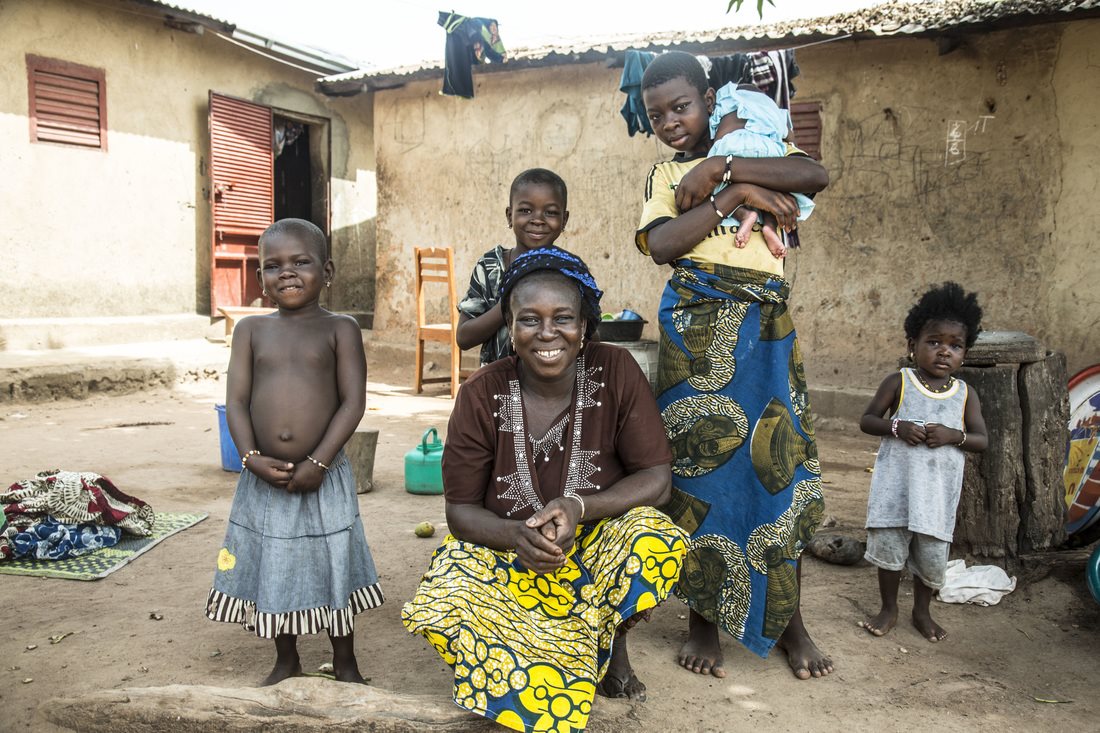Studies have shown that in many cases, strengthening the role of women is the most effective measure to improve food and nutritional security among families. Women play a decisive role in food security, food diversity and the health of children. Strengthening the role of women thus needs an empowerment process which, generally speaking, covers the economic, socio-cultural, legal, political and psychological domains.
The F4F programme authorizes catalytic investments for women’s empowerment. The objective is to reinforce their empowerment with a combination of specific projects or elements. The approach depends on the nature of the activities which can be put in place in each participating country. With the formation investments for feminine organizations and capacity building, there is also all the advocacy activities and regulatory frameworks that support social and political participation of women at the local level. The structuring of women at the grassroots serves as an impulse to a real transformative process. There is therefore constant interaction between the projects and the process of participating to the decision-making and local governance.
5 strategies to strengthen the role of women

Improving women’s legal rights
Land access grants the possibility to physically use the land. In order to have an autonomous production, women must have access to tenure security. However, they generally possess secondary or “delegated” rights and their access to land is often conditioned by men. Local authorities have ever increasing competences in this matter and can, for example, make sure that local organizations of land management and conflict resolution take into account the issuing concerning of women in the region.
Strengthen the role of women in food production
Women often face more obstacles than men to have access to loans, agricultural inputs, and to receive appropriate advice and support. Research has shown that on average, men obtain 25 percent more crop yield than women. The reasons are simple: they have access to less agricultural inputs, their fields lose their fertility faster, they have less access to counselling and support services, and in most countries there is a 5 to 10 percent gap between women who are the chiefs of households and who have access to finance and their male counterparts. The F4F programme sets up strategies to bring answers to the needs for agricultural intensification specific to women and provide support to the processing of local agricultural products. Processing being linked to marketing, those initiatives participate to the generation of revenues for women and, by extension, to the improvement of life standards of households, especially in the rural areas.
Improve women’s access and control of income management
By having access to better sources of revenue, women can better contribute to food access for their family. The traditional division of labour grants women various agricultural or non-agricultural activities, such as food processing, craftsmanship, or retail business which allow for many women to become autonomous entrepreneurs of the family unit and also to accumulate wealth whose importance depends on the environments. Obstacles faced by women, as micro-entrepreneurs, are essentially those linked to cultural and the economy. On the cultural aspect, the F4F programme incentivizes communities to engage all their members in the decisions and actions for development. The promotion of feminine entrepreneurship has an important role to play in this domain.
Reduce and better balanced the workload
Women’s workload within their household is often excessive and does not leave time for production, income generation or well-being. Their workload is characterized by an accumulation of repetitive tasks, often burdens and which take a big part of their available time. Women’s availability has a direct impact on food and nutritional security and on their capacity to capitalize resources. Introducing the problem of women’s workload in the projects supporting production and food processing, and in programmes for sanitary infrastructures can orientate intervention choices and the selection of technologies.
Strengthen women’s social participation
A better contribution of women to food security goes through enhancing their social role, their active participation to open debates and in governance mechanisms. Women’s organization at the local level is crucial to meet the objectives of autonomy. In practice, most women's groups play an important part in food and nutritional security. Autonomous organization is also a stepping stone to increase the participation of women to the decision-making process at the local level as one of the key elements of democratic local governance. Promoting leadership roles for women within local communities, in the light of social and cultural norms, can pass through women-only groups so as women can be elected as leader and take all the decisions concerning them.

